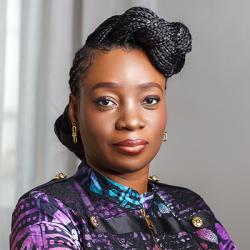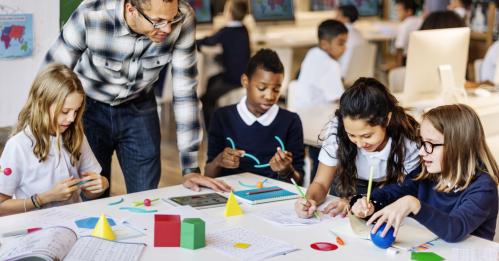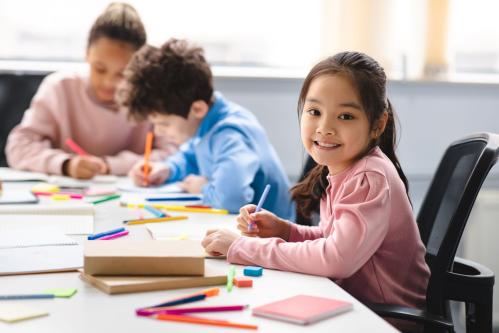In this blog series, we’ve been highlighting the context for and motivation behind the creation of the Knowing-Doing Network Leadership Coalition (KDNLC), a group of 10 civil society organizations who are partnering with Brookings to understand and promote the transformation of education systems in order to broaden learning and skills development opportunities for children and youth around the world. In our first three blogs, we shared the vision for the KDNLC’s collaborative work, the struggles children and young people face that make this work necessary, and the network approach that will enable us to deeply understand ecosystems and adopt a sustainable approach to our research and practice.
This fourth blog discusses why and how we are collectively shaping one of the first priorities in our shared research agenda: a common research question that enables our member organizations to explore the elements and participants of education ecosystems in their local contexts.
The mission: From conceptual frameworks to contextualized evidence
Before we share more about the process of developing this research question, it is important to share the frameworks we have used to ground this exploration of education systems transformation, writ large, and the positioning of our network to that end.
In their work on education systems transformation, Winthrop and Sengeh present a framework for true systems change: purpose, pedagogy, and positioning (the 3 P’s). They find that jurisdictions on the pathway to transformation present three characteristics. Ecosystem actors in these jurisdictions:
- Create and align on shared goals and purposes.
- Redesign pedagogical structures towards that purpose.
- Reposition the critical elements of the education system to bolster and enable those goals.
In a follow-up piece, Winthrop, Morris, and Qargha reflect further on the need to include power as a 4th “P” in their theory, given a deconstruction of power dynamics is essential for inclusive and equitable transformation.
Furthermore, drawing on Michael Fullan’s work on sustainable systems change, we found that a potential lever towards these 4 P’s of education systems transformation involves deploying a strategy that connects people, policies, and practices in the wider ecosystem. Three interconnected processes are necessary to move along this pathway:
- Building the capacity of ‘middle’ members of the education ecosystem, such as local districts and administrators, who work to translate policies into practice;
- Fostering commitment to the change process by deepening the involvement and buy-in of all the key ecosystem participants;
- And helping the system cohere by strengthening the alignment between policy priorities and the needs of local people.
Together, these two perspectives helped clarify what we were seeking to understand and how we should approach that journey of inquiry. Building on their findings, we aim to investigate the elements and levers of systems transformation in our 10 local contexts through a network approach that will strengthen capacity, commitment, and cohesion.
The opportunity: How do we co-create a shared research agenda?
To approach this research as a network, it was clear that we needed a common question that would unite and drive our efforts to understand each organization’s local context. But how does one create a structure for collaborative investigation in 10 different countries? Our answer stems from our impact network approach described in the last blog: co-creation. Dedicated to the development of a network where power is shared amongst members, it was essential that our initial inquiry was informed by those conducting the research, rather than guided primarily by the team at the Center for Universal Education (CUE). Thus, the KDNLC formed a subgroup of six representatives─the KDNLC Research Discovery Group (RDG)─who volunteered their time and expertise to foster a collaborative approach to research. After calling for organizational proposals sharing what specific systemic factors and conditions each organization was hoping to investigate, the RDG analyzed these proposals for common exploratory themes. This resulted in a fruitful discussion between RDG members who quickly witnessed the depth and breadth of their fellow members’ work in their communities. It became evident that it would require intention and compromise to find a question that would be specific to our mission, while broad enough to encapsulate the diversity of ten different country contexts and research opportunities.
The value: What is challenging and powerful about a co-creative process?
The KDNLC’s discussion highlighted a core tension that is present in network work writ large: intentional collaboration, while having a high potential for effectiveness and equity, often comes with a tradeoff of traditional efficiency. Co-creation is a complex, time-consuming approach, yet one that recognizes the agency and expertise of local actors. This allows for deep engagement, rich perspectives, intentionally shifted power dynamics, and nuance that reflects the complexity of our world.
The result of this discussion reflects that very complexity, as we landed on the question:
How well are education systems creating opportunities for youth to learn what matters?
Intentionally broad, this question offers each organization the opportunity to reflect on “what matters” in their local context, as the needs of an education system in Malawi will inherently differ, in part, from the needs of one in Jordan, Mexico, India, Ghana, Chile, or South Africa. But it is precisely this opportunity for broader exploration that will enable us to better identify commonalities across contexts and move conversations from local realities to global strategies.
For example, the Dignitas Project is evaluating the communal buy-in and execution of Kenya’s new Competency-Based Curriculum, while Enseña Peru is looking to understand the power dynamics that inhibit transformation in more marginalized communities. The Pakistan Coalition for Education is investigating how policy prioritizes different skills at different educational levels. Each organization in the KDNLC is using their community connections, expertise, and thematic lens to investigate the relationships and systemic factors that create the current reality of learning priorities and opportunities in their context.
The future: How are we advancing locally-led research and global-local collaboration?
In conversations with the network, we come back time and time again to this idea that there is value in both the process and the product of our work. Although we will undoubtedly have rich learnings from our common research question, we have already collectively learned a great deal through the path we took to arrive at said question. Members have shared that our participatory approach has encouraged them to think more deeply about their own practices in local networks, while their efforts on the ground are helping us better understand the capacity in their own partnerships with local policymakers, universities, civil society organizations, and other community members.
As our network members have built out creative methodologies and begun a deeper inquiry into their local contexts, our upcoming work will focus on articulating the lessons they are learning from one another through this process of navigating local and global exploration together.
As each organization carries forward this common research agenda, they will have the chance to share local knowledge with one another, identify further cross-cutting challenges, and develop sister strategies to move towards our collective goal of transforming education systems so that children and young people can access a breadth of skills that enable them to thrive.
The Brookings Institution is committed to quality, independence, and impact.
We are supported by a diverse array of funders. In line with our values and policies, each Brookings publication represents the sole views of its author(s).









Commentary
Co-creating a shared research question and agenda
October 31, 2024